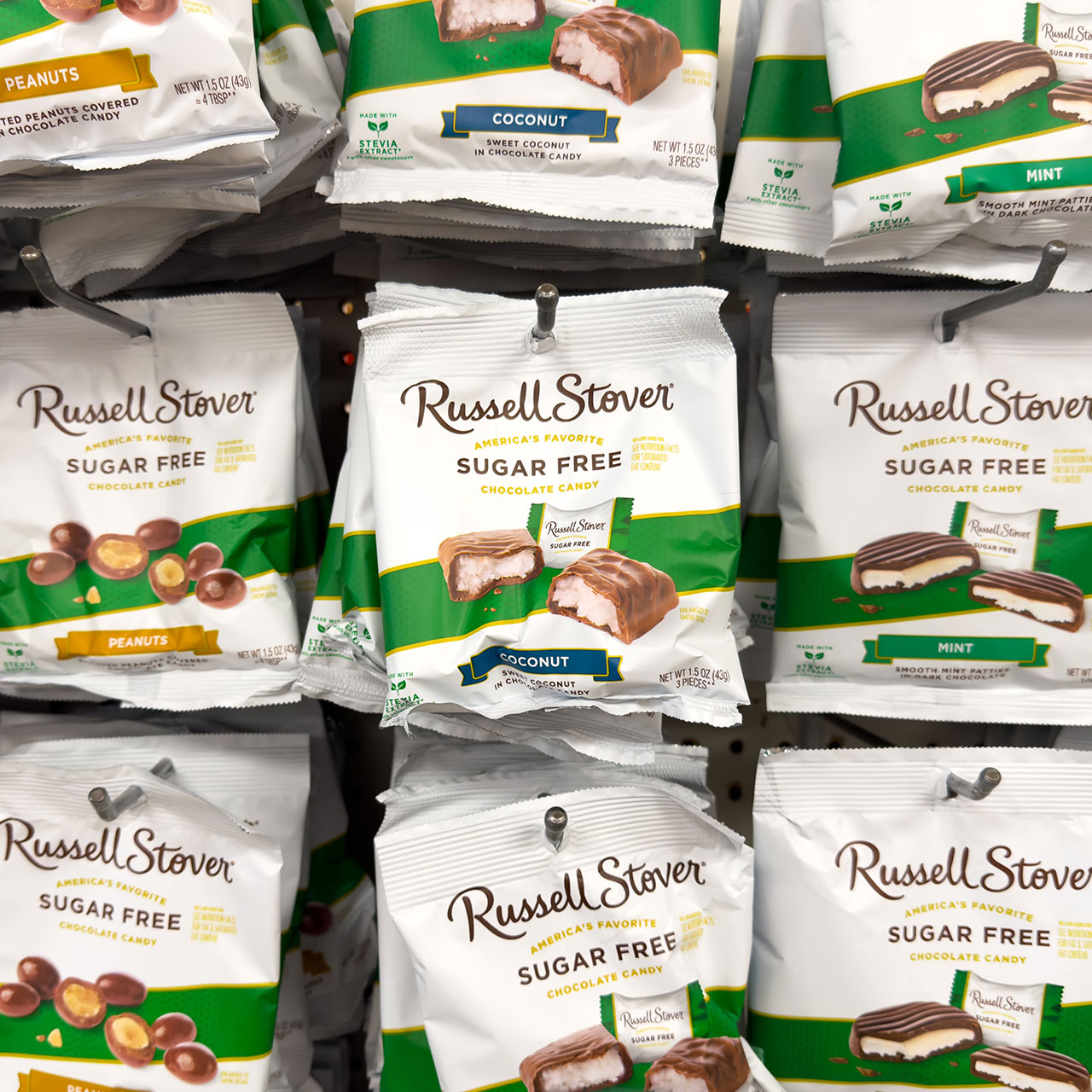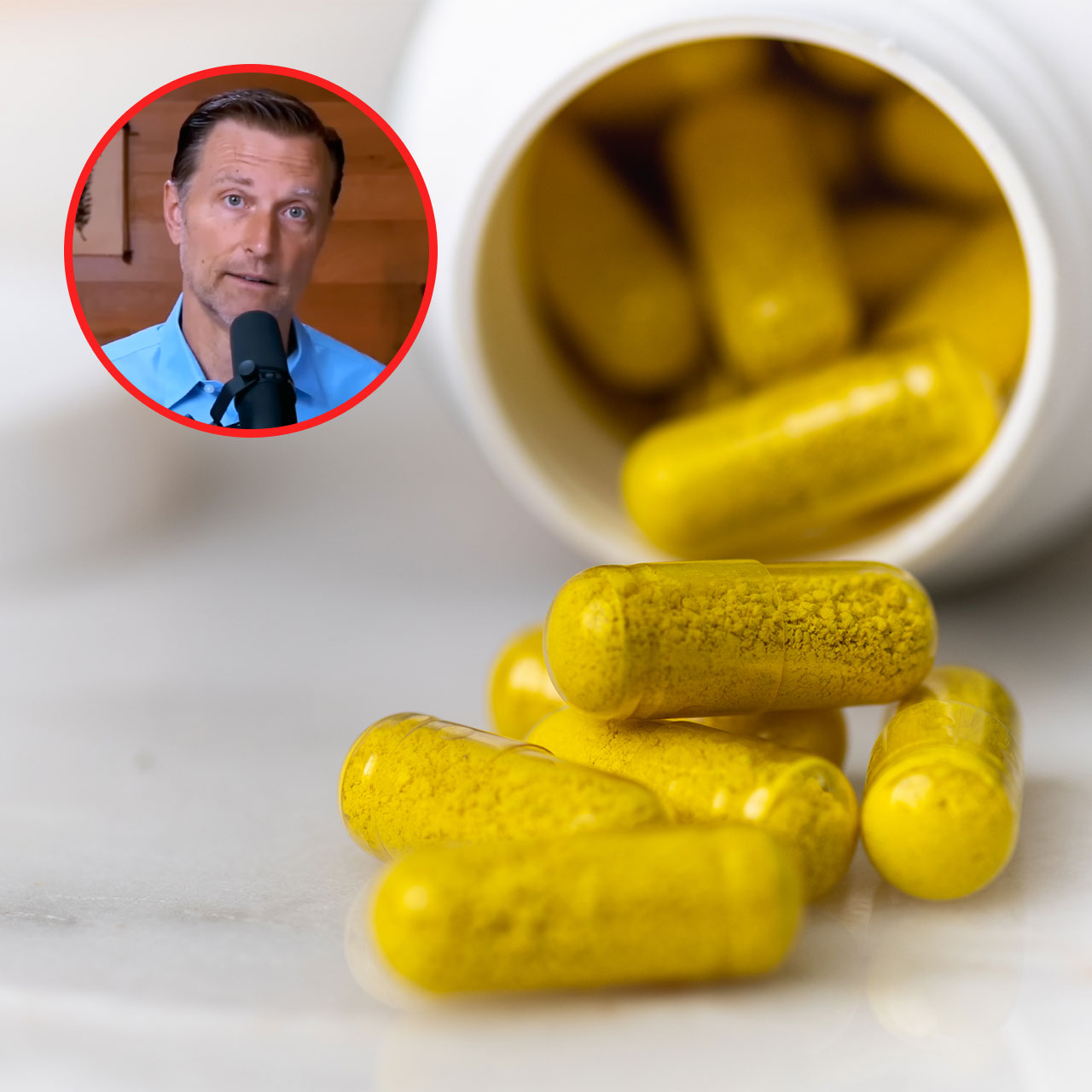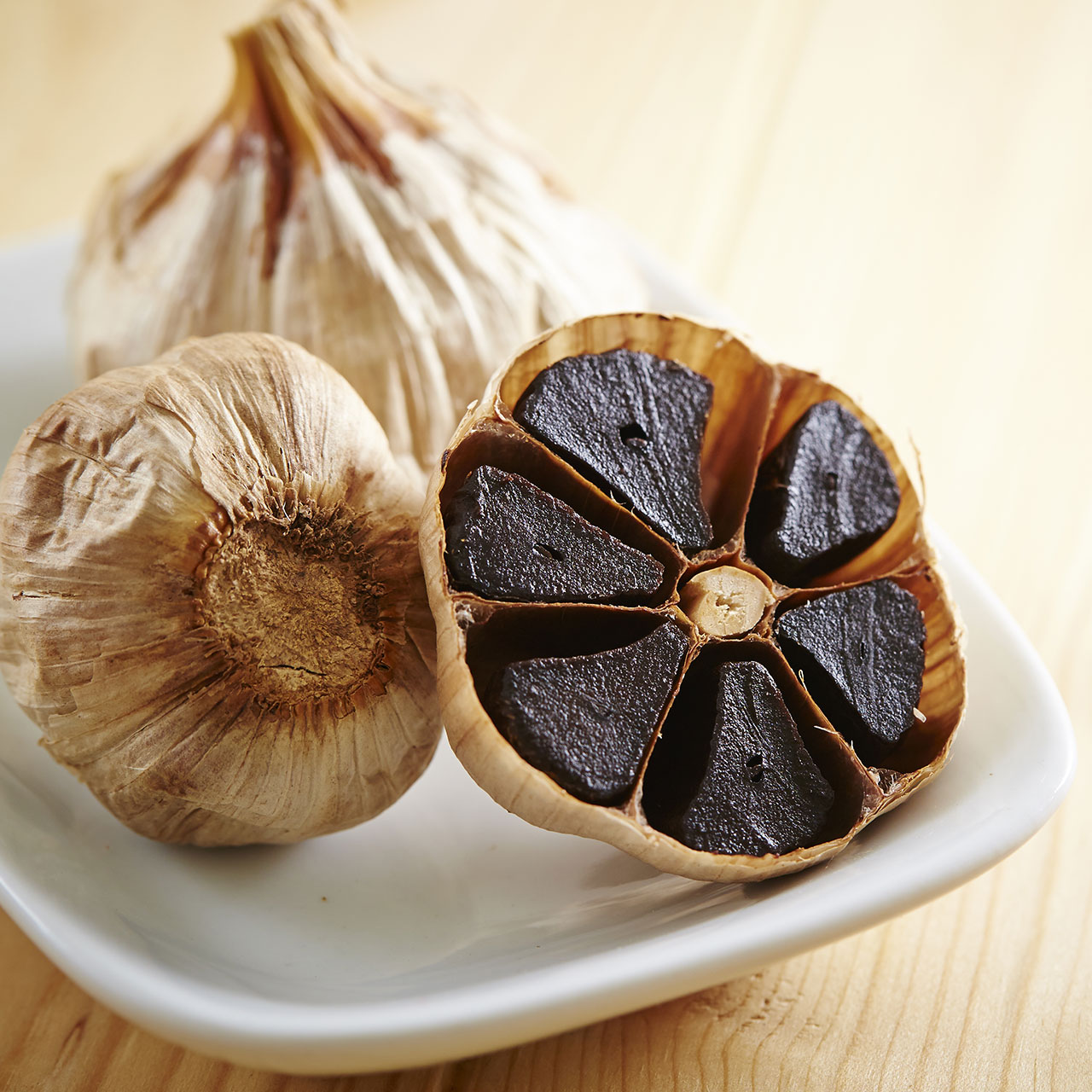While bloating and indigestion have many different causes and contributing factors, there are 4 common ways in particular when it comes to cooking, that health experts suggest looking out for and avoiding. We checked in with Amy Lippert, NTP, BS, BA, MAT, Functional Nutritionist, Dr. Josh Axe, D.N.M.., C.N.S, D.C., health and nutrition expert, and Lisa Richards, registered nutritionist for 4 reasons why you might suffer from frequent bloating.

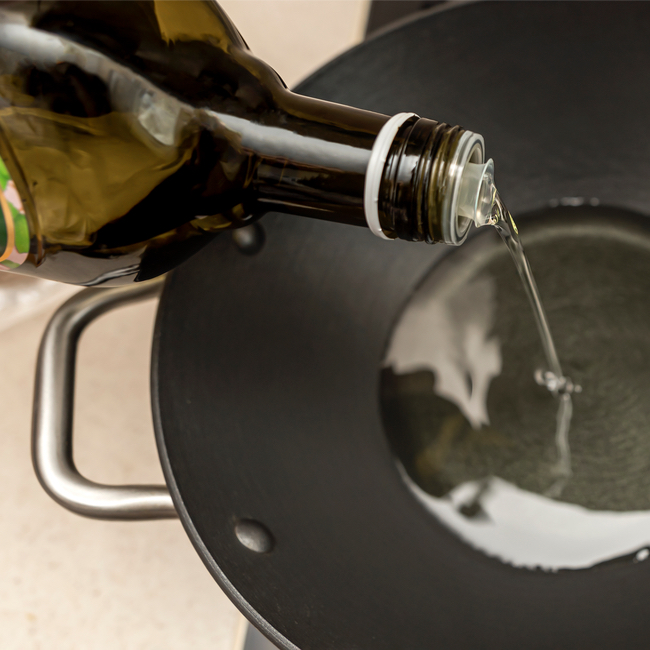
1. Using Too Much Oil or Dressing
Adding “hidden calories” such as lots of "poor quality oils" and "dressings" can lead to bloating and indigestion, Axe says. These are sources of lots of calories and fat that may make your meals taste a bit better, he explains, but they ultimately aren’t very filling considering how calorie-dense they are, nor do they provide a lot of nutrients. "A better approach is to cook meals high in protein and fiber, especially from fresh vegetables, and then add a small amount of healthy fat such as real olive oil, avocado, nuts, seeds or coconut oil," he suggests. Axe deems this "the best way to feel full with less calories and to obtain essential nutrients you need (this is assuming you’re eating a balanced diet and not following something like a ketogenic diet)."
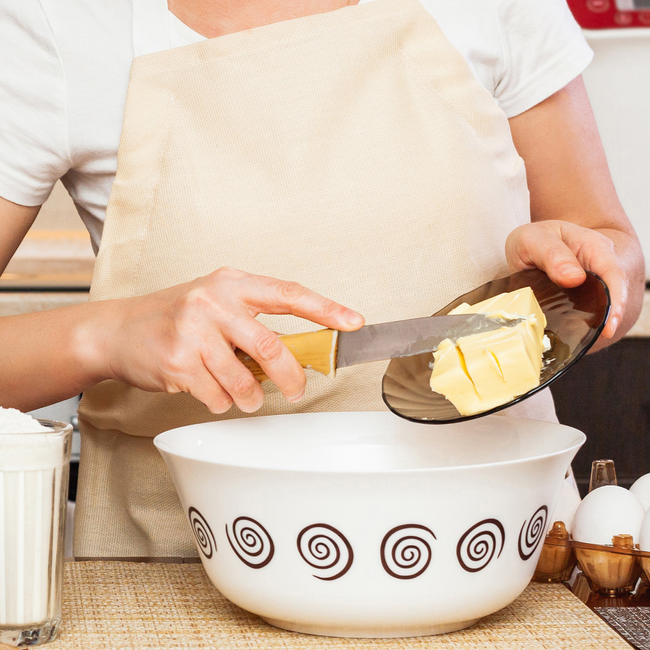
2. Adding Lots of Butter
While butter is delicious and nostalgic in many meals or on a piece of toast, Richards stresses that adding too much of this can lead to stomach pain or bloating. "This ingredient can cause the consumer to continue eating even past their fullness," she explains. "Butter is a full fat ingredient," Richards continues, that "provides 9 calories per gram, which makes the calorie count significantly higher than it would be without this ingredient."
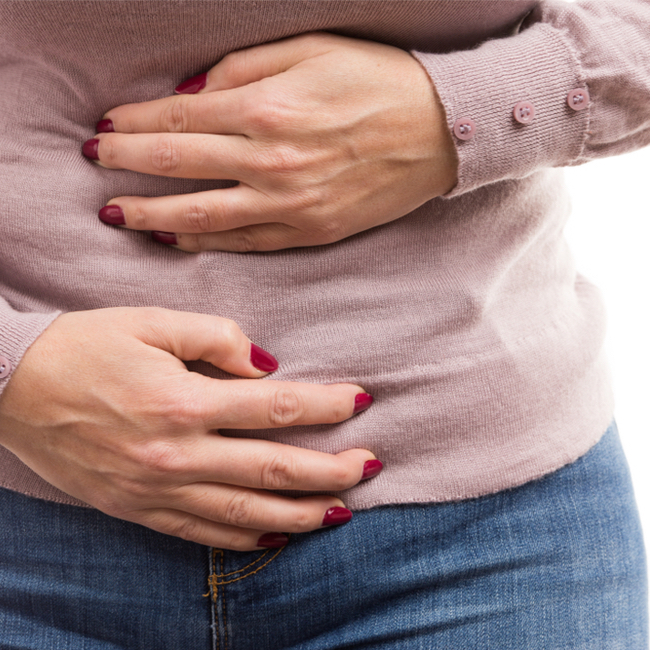
3. Cooking Heavily Refined / Processed Foods
The best change to make to your diet to reduce bloating is to "reduce the amount of heavily refined and processed foods from your diet," Lippert says. Cooking and eating "fresh, whole foods" is not only better for you, but it’s better for your gut, she emphasizes. "A diet heavy in refined sugars, flours, and oils fuels and feeds unpleasant microbes in our gut, causing them to release gas and other unpleasantries." On the contrary, Lippert adds that "a diet rich in whole foods fuels the good microbes in our gut supporting a healthier you with a lot less bloating."
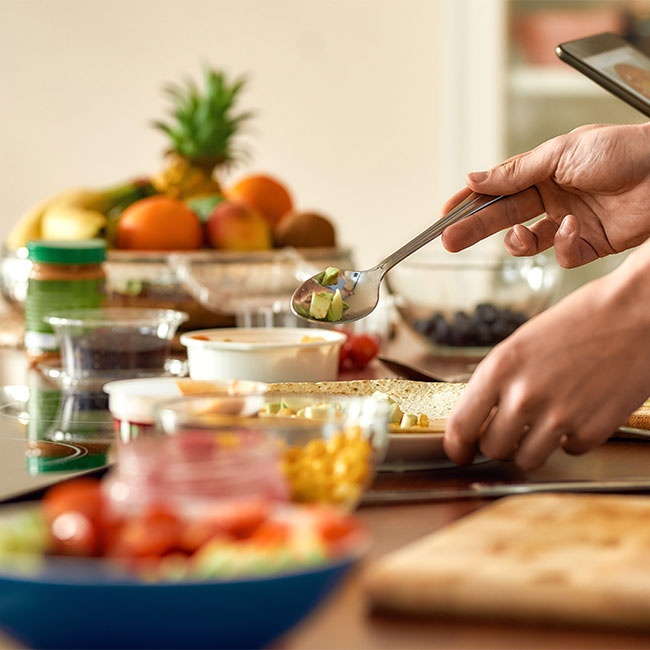
4. Failing To Meal Prep
One common cooking mistake that makes weight loss so hard and causes bloating is "not cooking enough," Lippert says. "Eating in and cooking your meals for yourself will always support a healthier more nutritious diet rather than eating out." By meal prepping and cooking for yourself, Lippert says that you are "able to balance macronutrients, and incorporate a variety of nutrients through foods." Not to mention, choosing your own portion sizes and planning ahead is more likely to prevent overeating (which more often than not leads to painful bloating). "Trying to pull together a meal at the last minute while hungry is a difficult thing to do," Lippert continues, stressing the importance of "planning, prepping, and fueling your body with real foods."
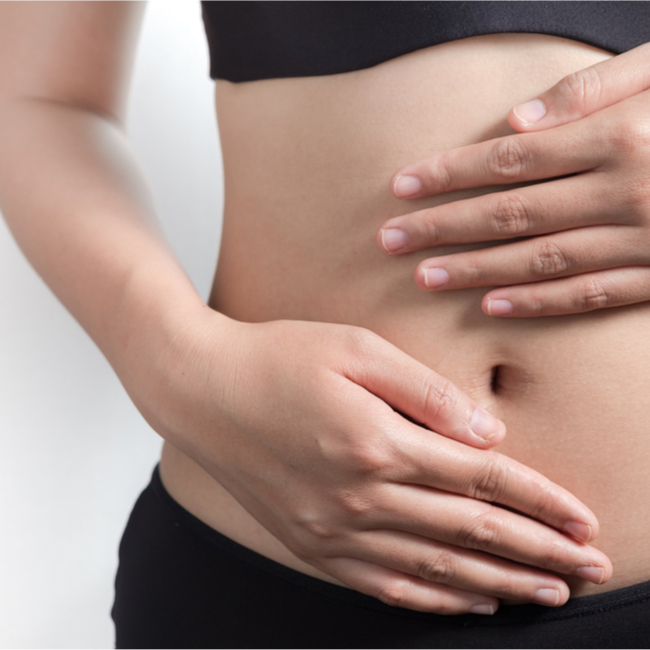
The best way to beat bloating, Axe concludes, is "to make sure you're not constipated." In other words, "you want to eat a healthy diet that encourages daily bowel movements." To do this, Axe recommends "eating enough fiber from foods like cooked veggies, fruit, nuts, seeds, avocado, and if you can tolerate them well, soaked whole grains, beans and legumes. Also drink plenty of water." If you find that a high fiber diet actually worsens your bloating, he notes that you should "consider trying a low FODMAP diet — which eliminates certain types of carbs, but encourages others, in order to improve digestive health."
















